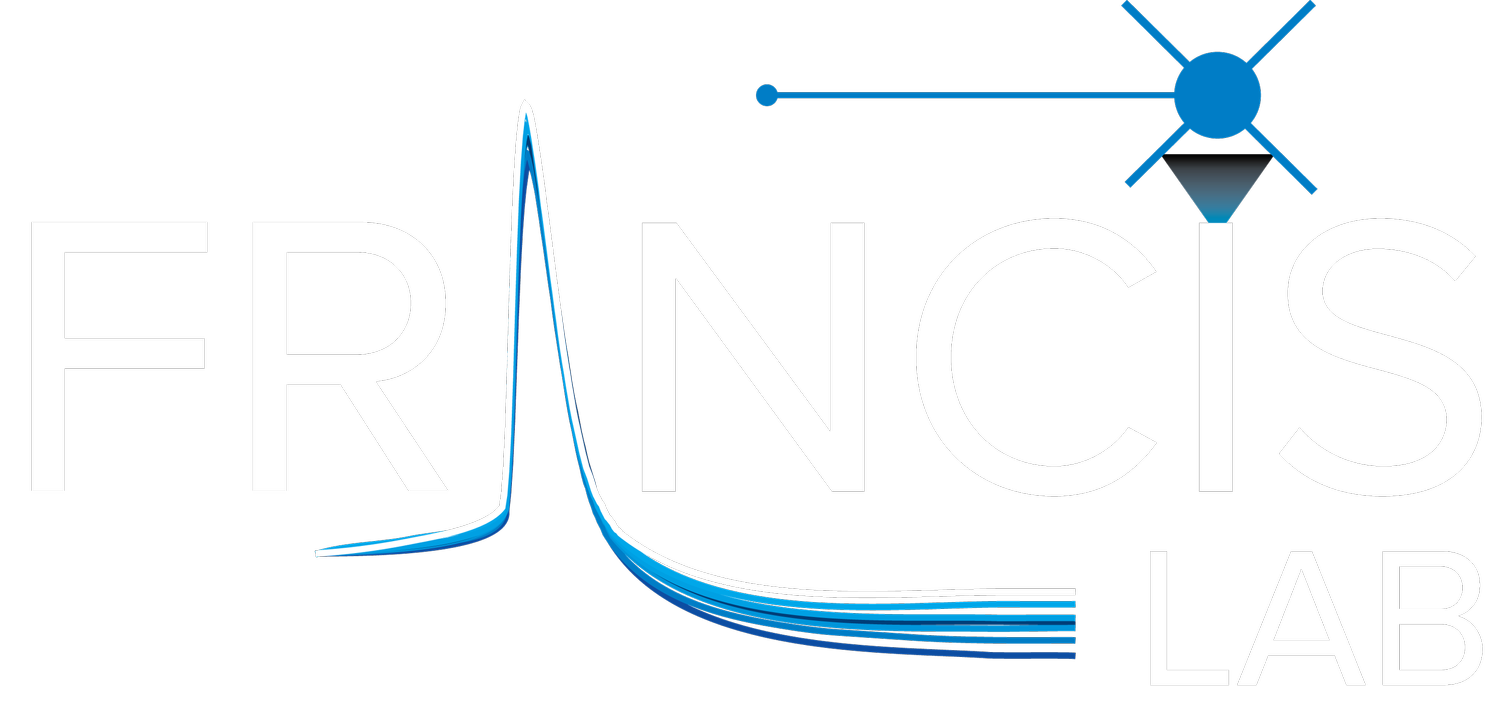Assistant Professor, PI
Chase Francis has a long-standing interest in how high frequency stimulation, commonly used in deep brain stimulation, alters motivational states. His research career began at Appalachian State University where he received his B.A. and B.S. in biology and psychology, respectively, studying the effects of audiogenic seizures on emotional states in rats under the mentorship of Dr. Mark Zrull. In 2011, he continued his training at the University of Maryland, Baltimore working in the molecular neurocircuitry lab of Dr. Mary Kay Lobo where he obtained his Ph.D. (first generation academic). Here, he studied the role of medium spiny neuron subtypes in outcomes to social defeat stress and uncovered molecular and structural underpinnings driving alterations in medium spiny neuron neurophysiology. He joined the Synaptic Plasticity Section of the NIDA IRP in 2016 where he studied peptidergic release and plasticity within the striatum. In 2019, he continued his research in the Integrative Research Branch under the advisement of Dr. Marisela Morales. He joined the Drug Discovery and Biomedical Sciences Department in June 2022. The lab focuses on how brain stimulation facilitates peptide and neuromodulator release within the striatum altering local circuitry and behavioral responding to salient stimuli. The primary goal of the lab is to refining brain stimulation protocols or develop novel and targeted drug therapeutics to treat emotion-related psychiatric disorders. In his free time he enjoys hiking, playing and listening to music, and being silly with his kids.
Desh Deepak Ratna, Ph.D.
Post-doctoral Researcher
DD joined the Francis lab in February 2024 after completing his Ph.D. under the mentorship of Prof. Birendra Nath Mallick at Jawaharlal Nehru University (JNU) in New Delhi, India. There, he studied how midbrain circuits including the VTA, LC, and PPT are involved in rapid eye movement (REM) sleep. In the Francis lab, he is primarily studying how acute vs. repeated stress drives selective synaptic plasticity in the Nucleus Accumbens. He has also continued to follow his passion for understanding midbrain circuits and their regulation of brain areas in circadian rhythms and sensory modulation. DD is an excellent cook and loves to share his food with the lab.
Eugene Lee, M.S.
Ph.D. Graduate Student
Eugene began in the Francis lab in August of 2024 after completing her masters thesis at Korea University in Seoul, South Korea. She studied how local prefrontocortical circuits are involved in memory and how excitatory circuits connecting to the striatum are involved in memory and psychiatric disorders. In the Francis lab, she is studying how sensory stimuli can be used to promote plasticity in Nucleus Accumbens circuits.
Makenna Hamilton
Undergraduate Research Assistant
Lab Alumni
Cortez Gray, B.S.
Liz Mays, B.S.
Destiny Black, B.S.
Holiday outing with food and drinks at Bierkeller German Brewery
DD presents new data at NeuroNet
Eugene wins the James Plaxo Jr. Scholarship Award for outstanding research in Pharmaceutical Sciences








